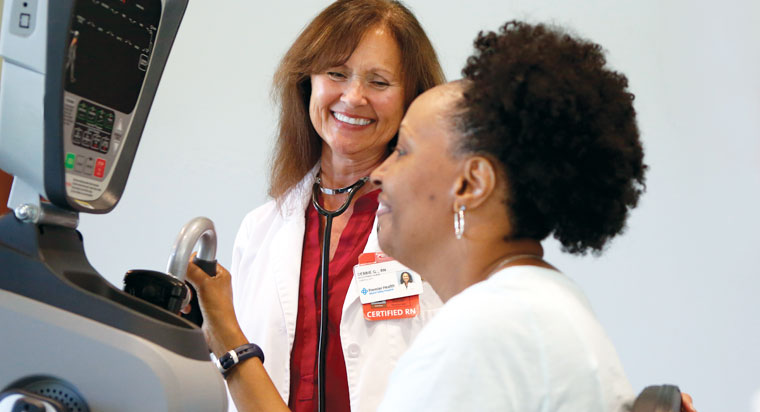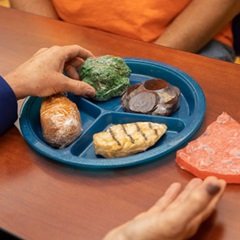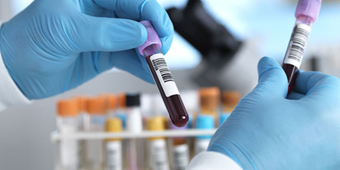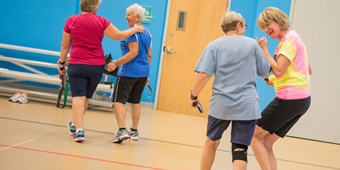What To Expect When Your Doctor Recommends Cardiac Rehab

Answer a few questions and we'll provide you with a list of primary care providers that best fit your needs.
If you’re recovering from a heart-related condition or surgery, your health care provider will likely recommend cardiac rehabilitation — or cardiac rehab, as it is more commonly called.
Cardiac rehab helps people feel better, regain strength, adopt a healthier lifestyle, and even live longer.
What Is Cardiac Rehab?
Cardiac rehab is a medically supervised program created to improve your cardiovascular health. The goal of any cardiac rehab program is to lower the likelihood of future heart problems and to help you get back faster to an active, healthy life.
Cardiac rehab is often recommended for people who’ve had:
- A heart attack, when blood flow to the heart suddenly becomes blocked
- Angioplasty, surgery that uses a tiny inflated balloon to widen the blocked artery and restore blood flow
- Coronary artery bypass surgery,
surgery that treats blocked arteries by using a healthy vein from another part of the body to go around the blockage - A heart or heart-lung transplant
- Angina, chest pain or discomfort
- Heart failure, when your heart can’t pump enough blood to meet your body’s needs
 What Does Cardiac Rehab Involve?
What Does Cardiac Rehab Involve?
A well-rounded cardiac rehab program is a team effort. Your cardiac rehab team may include doctors, nurses, exercise specialists, physical and/or occupational therapists, a nutritionist, a mental health professional, and a case manager. Together, they will design a program just for you that includes:
- Exercise counseling and supervised training
- Practical advice for heart-healthy living
- Advice from a nutritionist to help you create a healthy eating plan that limits foods high in saturated fat, trans fat, and cholesterol
- Counseling to reduce stress
- Support for managing medications and quitting smoking
- Help in reducing risk factors like high blood pressure, high cholesterol, depression, and diabetes
The goal of any cardiac rehab program is to lower the likelihood of future heart problems and to help you get back faster to an active, healthy life.
What Are the Different Levels Of Cardiac Rehab?
Your exercise program will take place at a rehab center, often in a hospital. Cardiac rehab programs generally last about three months, with sessions two or three times a week. Sessions typically last 30 to 45 minutes.
First, you’ll have a medical evaluation to figure out your needs and limitations. Then your team will tailor activities just for you. You’ll start slowly, following a safe exercise program that gradually helps you become stronger.
Along the way, you’ll be monitored for any changes in symptoms by a health care professional. She will also check your heart rate, blood pressure, and EKG (electrocardiogram), a test that measures your heart’s electrical activity and can signal if there’s a problem.
As you increase your physical stamina, you may:
- Exercise using a treadmill, bike, rowing machine, or walking/jogging track
- Slowly move into a more intensive program
- Possibly begin strength training, if your doctor approves. This can include lifting weights, using a wall pulley, or using elastic bands.
How Does Cardiac Rehab Help In Recovery?
For many people, cardiac rehab can be lifesaving. It’s a big step toward better health and quality of life. It can also help you:
- Lower your risk of future heart problems
- Reduce the need for heart medicines
- Eat better
- Lose weight
- Return to work
- Get back to the daily activities you may have missed
- Connect with others who’ve been through a similar event
- Learn relaxation skills to manage stress
- Live a longer, healthier life
If you are recovering after heart problems or surgery, ask your health care provider if you’re eligible for cardiac rehab.
Answer a few questions and we'll provide you with a list of primary care providers that best fit your needs.
Sources: American Heart Association; American College of Cardiology; MedlinePlus




